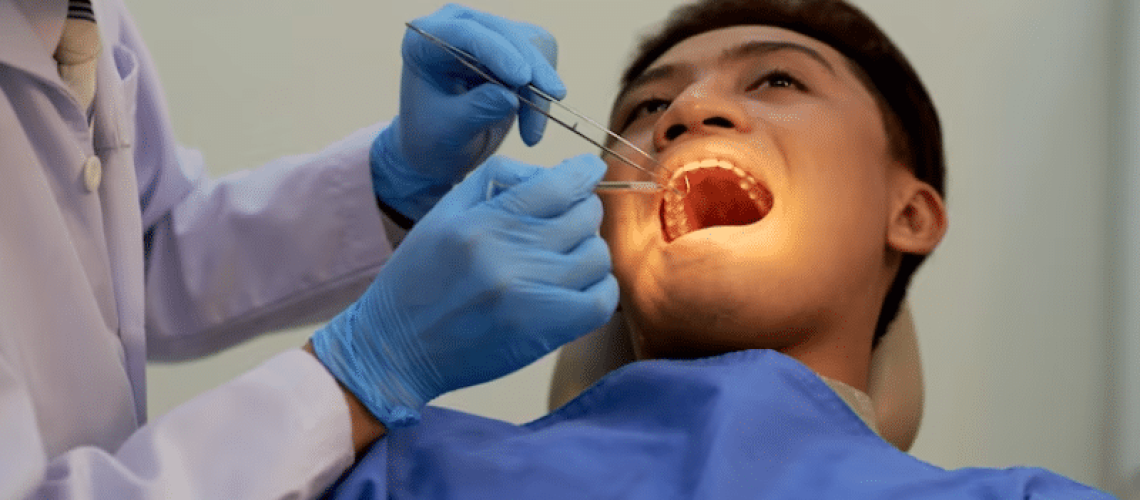Gum recession can be a painful and unsightly condition that affects millions of people around the world. It’s caused by a variety of factors, including poor oral hygiene, genetics, and certain medical conditions. But don’t worry – there are plenty of things you can do to prevent gum recession and keep your gums healthy! In this blog post, we’ll share some tips for maintaining strong, healthy gums so you can smile with confidence.
Whether you’re dealing with gum disease or just want to give your oral health an extra boost, read on for some expert advice.
What is Periodontal Disease and Gum Recession
Periodontal disease, also known as gum disease, is a bacterial infection of the gums that can destroy the soft tissue and bone supporting your teeth. If left untreated, periodontal disease can lead to gum recession, which is when your gums start to pull away from your teeth. Gum recession can cause your teeth to become loose and eventually fall out. Gum recession is a gradual process that usually happens over time.
Gum Recession Definition and Causes
Brushing too hard: brushing your teeth too aggressively can damage your gums and cause them to recede. Be sure to use a soft-bristled toothbrush and gentle strokes when brushing.
Poor dental hygiene: neglecting to brush and floss your teeth properly can lead to plaque buildup, which can eventually damage your gums. Be sure to brush at least twice a day and floss daily.
Chewing on hard objects: chewing on hard objects such as pencils or ice can damage your gum tissue and cause it to recede. If you must chew on something, choose softer items such as gum or celery sticks.
Genetics: some people are simply more prone to gum recession due to genetics or underlying medical conditions. If you have a family history of gum disease, be sure to take extra care of your oral hygiene.
Source: ToothIQ
Other Causes Of the Gum Recession Include:
Brushing too hard
This can damage the gums and tooth enamel. Use a soft-bristled toothbrush and gentle circular motions when brushing your teeth.
Trauma
An injury to the gums can cause them to recede. This could be from biting your lips or tongue, wearing ill-fitting dentures, or using oral piercings.
Genetics
Some people are simply more susceptible to gum recession due to genetics.
How to Prevent Gum Recession
Gum recession is a common dental issue that can lead to a number of problems, including tooth loss. While it’s not always possible to completely prevent gum recession, there are some things you can do to reduce your risk.
Here are some tips for preventing gum recession:
- Practice good oral hygiene: This means brushing twice a day with a soft-bristled brush and flossing daily. Be sure to brush gently so you don’t damage your gums.
- See your dentist regularly for professional cleanings and checkups: This will help remove tartar and plaque build-up that can contribute to gum disease.
- Quit smoking: Smoking is a major risk factor for gum disease and other oral health problems. If you smoke, quitting is the best thing you can do for your oral health.
- Use fluoride toothpaste and mouthwash: Fluoride helps strengthen teeth and prevents cavities, which can lead to gum recession if left untreated.
- Avoid using tobacco products of any kind: In addition to smoking, using chewing tobacco or other tobacco products can also increase your risk of developing gum disease and experiencing gum recession
Tips for Maintaining Healthy Gums
To keep your gums healthy, brush and floss regularly. Be sure to use a soft-bristled toothbrush so you don’t damage your gums. You may also want to use an antibacterial mouthwash to help keep your gums free of infection. If you have any concerns about your gum health, be sure to see your dentist for an evaluation.
Dental Hygiene Habits for Treating and Preventing Periodontal Disease
Periodontal disease, or gum disease, is a serious infection of the gums and tissues that support your teeth. It is one of the leading causes of tooth loss in adults. While periodontal disease can occur at any age, it is most common in adults over the age of 30.
The best way to prevent gum disease is to practice good dental hygiene habits. This means brushing your teeth twice a day, flossing daily, and using mouthwash. It is also important to visit your dentist regularly for professional cleanings and checkups.
Preventing gum recession is an important part of oral health care. Taking steps to maintain strong, healthy gums can help you avoid the pain and discomfort of receding gums. Regular brushing and flossing, avoiding smoking, eating a balanced diet full of vitamins and minerals, and visiting your dentist regularly for check-ups are all key components in helping to prevent gum recession. By following these tips you can protect your teeth from further damage and keep your smile looking great!

